- You are here:
- Home »
- Organic Mattresses »
- Organic Mattress Certifications
Organic Mattress Certifications
If you’re thinking of buying an organic mattress, you have to make sure it’s got certificates that show it has been tested for the presence of harmful chemicals and it actually contains organic materials.
Some manufacturers claim that their mattresses are organic and non-toxic, but if they don’t have any certificates, it means that their claims have not been scientifically verified. Take a look at our list of organic mattress certificates and find out what they mean before you buy your organic mattress:
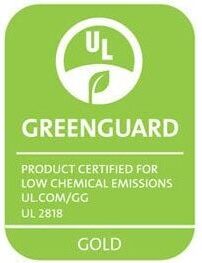
GreenGuard GOLD
GreenGuard tests mattresses for the presence of volatile organic compounds (VOC). They place mattresses in vacuum chambers and test air samples using gas chromatography, mass spectrometry, and other technologies.
The levels of formaldehyde, VOCs, and other toxic chemicals that could affect indoor air quality must be below the limits allowed in order to satisfy GreenGuard certification standards.
Some organic mattresses obtain the GreenGuard GOLD standard, meaning they have the highest level of purity. They are safe for the most vulnerable people, including children elderly, and those suffering from chemical sensitivities. If you want to buy a Greenguard-certified mattress, check the following brands: PlushBeds and Avocado.
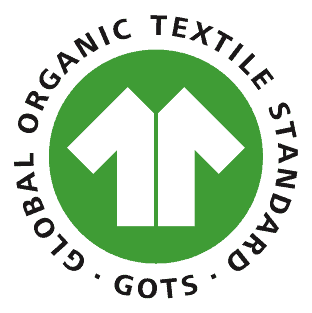
Global Organic Textile Standard
Global Organic Textile Standard (GOTS) certifies mattress materials as organic. GOTS certification tests materials throughout the supply chain and the manufacturing process, and they certify that a material contains at least 95% of organic fibers, contains no toxic substances, GOTS-certified colorants, etc.
GOTS-certified materials (such as organic cotton) have to be made in places that met strict social criteria which ensure that there is no forced labor, child labor, and health and safety conditions are met.
Your organic mattress covers should be made of GOTS-certified organic wool and cotton. Check their database to find GOTS certified suppliers.
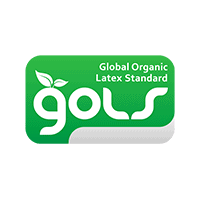
Global Organic Latex Standard
GOLS certificate is given to natural latex that contains 95% of organic material. It has to meet strict standards regarding the use of harmful chemicals, such as VOCs, certain chemical flame retardants, and formaldehyde, throughout the production chain, including rubber tree farms and harvesting.
GOLS not only takes into consideration the use of chemicals and their effect on human health and the environment throughout the manufacturing process, they also focus on social issues, such as the work conditions of people involved in the natural latex production chain.
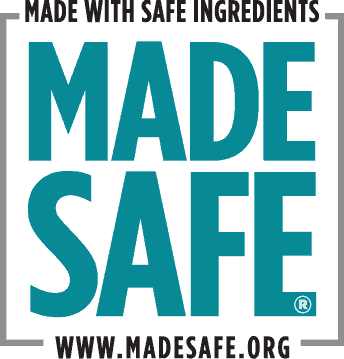
Made Safe
In Made Safe certified products, 6500 toxic substances are banned from use. They certify a wide range of products, including baby products and mattresses.
They use scientific methods, such as mass spectrometry, to scrutinize products for the presence of chemicals, such as pesticides, VOCs, neurotoxins, and fire retardants, that could be harmful to human health or the environment. Only three organic mattress brands are currently Made Safe certified: Avocado, Naturepedic and Happsy.
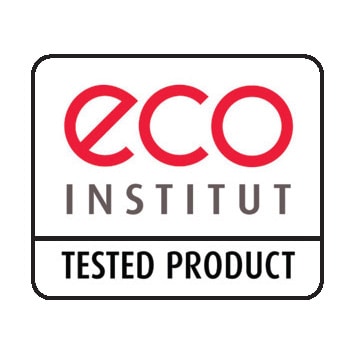
Eco-Institut
The Eco Institut is a Germany-based certification body that gives certificates to low-pollutant and low-emission indoor products, including furnishings and bedding. Their labs test materials used in your mattress for the presence of different toxic chemicals, such as VOCs, heavy metals, pesticides, and formaldehyde.
This label is given to products for a period of 2 years, and then it can be renewed to ensure that the products are always according to the high Eco-Institut standards.
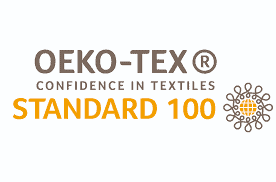
Oeko-Tex Standard
Oeko-Tex certification is given to mattresses and textile products that don’t contain or release certain toxic chemicals. They test every part of your mattress to make sure they all meet the strict criteria regarding the use of chemicals.
Apart from natural materials, they allow synthetic foam as long as they meet their criteria. You can check if your mattress is Oeko-Tex Certified using their database (choose your mattress category under Product Type).
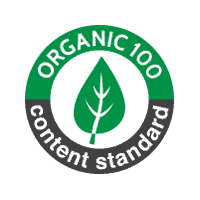
Organic Content Standard
Organic Content Standard checks the amount of organic materials in mattresses and other products. The organic materials must be grown and processed according to USDA Organic Standards, however, they don’t take into consideration the chemical composition of dyes and finishes that might be applied to these materials at later stages.
Depending on the percentage of organic materials it contains, your mattress can get either an Organic 100 seal (for 100% organic products) or Organic Blended seal (for products with lower amounts of organic materials). You can find all Organic Content Standard certified products in their database.
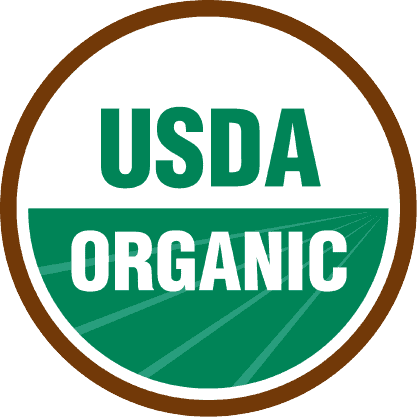
USDA Organic
USDA Organic seal certifies agricultural products that are grown and processed in accordance with organic standards, without using synthetic pesticides and fertilizers.
USDA certified organic products contain at least 95% of organic ingredients. If a product comes with a “Made with organic” label it means that it contains 70-94% of organic ingredients.
While USDA Organic certifies organic fibers, it doesn’t certify other non-organic components of your mattress as well as dyes and other chemical treatments. So when buying a mattress that only has this certificate, you can’t be sure it doesn’t contain any toxic chemicals.
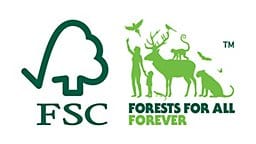
Forest Stewardship Council (FSC)
FSC-certified mattresses contain latex that comes from responsibly managed forests. The latex certified by the Forest Stewardship Council (FSC) can be easily traced to its origins so that the consumers can be sure it comes from sustainable sources that comply with FSC certification requirements.
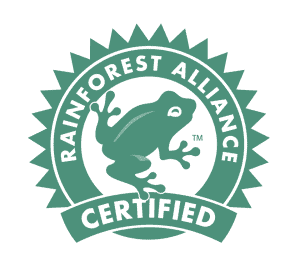
Rain Forest Alliance
The Rain Forest Alliance is a certification body for forest products. The certification process follows five principles that focus on continuous improvement in areas such as effective planning and management, biodiversity conservation, sustainable resource management, improving livelihoods, and making cattle farming more environmentally friendly.
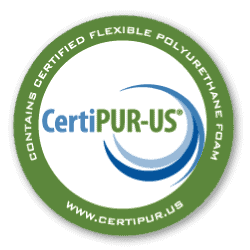
Certi-Pur
Certi-Pur is not a certificate given to organic mattresses, but we decided to include it in our list as it certifies mattress non-toxicity. They test polyurethane foam in memory foam mattresses to check if it meets their standards regarding the amounts of volatile organic compounds (VOCs), phthalates, flame retardants, heavy metals, and other chemicals that contribute to indoor air pollution.
They also prohibit the use of polybrominated diphenyl ether or PDBE. You can check the list of Certi-Pur certified companies here. If you decide to buy a memory foam mattress instead of an organic one, be sure that the product is Certi-PUR certified to minimize exposure to hazardous chemicals when you sleep.
What Is Greenwashing?
Greenwashing is a term that became popular in the 1980s. It refers to a company or organization that spends more time and money claiming to be environmentally friendly than actually implementing business practices that are good for the environment. It’s a form of false advertising.
Greenwashing can also refer to misleading claims about a product, service, or company made by an organization whose primary interests are in making money rather than the environment.
That’s why it’s important to check that your mattress has appropriate third-party certifications. This way, you can be sure that your mattress is made of eco-friendly materials and complies with environmental industry standards.
Why Is a 3rd Party Mattress Certification Important?
When buying a certified organic mattress, it is important to have a 3rd party certify that it follows certain safety standards. The mattress companies selling the mattress should be able to provide the certification documents for their product.
There are many independent organizations that verify that these standards are met so you can rest assured knowing your mattress is truly organic and not just made with natural materials. In the organic latex mattress industry, there are two main organizations that certify and approve such products. They are:
GOLS – Global Organic Latex Standard: A non-profit organization that certifies all aspects of the latex, including its harvesting, transport, transformation, and manufacturing.
GOTS – Global Organic Textile Standard: This is an internationally recognized certification for organic textile products, including the first criteria that ensure that no toxic dyes are used.
How Can I Verify an Organic Certification Is Real?
You can verify if a company is certified by visiting the website of the organization responsible for issuing certificates. For example, you can visit the relevant association’s website to check if an eco-label is real. The websites usually have a database where you can look up a product and its certification.
Alternatively, you can verify certification by asking the mattress makers or retailer for a copy of the certificate as proof. If you are not sure if a company is certified, contact the organization responsible for issuing certificates and find out.
Why Should You Buy a Certified Organic Mattress?
The term ‘
An organic mattress is made of 100% organic fabrics and materials. This means it contains no toxic chemicals or pesticides. It offers safety, health benefits and comfort that are compromised in conventional mattresses. Here are the main reasons to buy an organic mattress:
- An organic mattress is healthier for you because it is free of harmful toxins, chemicals and allergenic substances. These contaminants can be retained from conventional chemical processing, bleaching and dying. The mattresses contain a low emission of volatile organic compounds (VOCs), providing a healthier living environment for your family.
- Organic materials are sustainable and renewable resources that come from natural sources. The most common organic mattress is made of cotton, wool, naturally grown latex rubber and organic kapok. The cotton is grown without the use of poisonous chemicals, which are routinely used in conventional farming.
- Organic mattresses provide higher levels of comfort than cheaper alternatives because they adapt to your body shape, allowing for breathability, even distribution of weight and contouring support for healthy sleep. The lack of harsh chemicals and the use of natural materials results in a comfortable sleeping surface that lasts much longer than conventional mattresses.
- A 100% natural mattress is much better for the environment because it does not add harmful chemicals to our environment, which can be leached when rain falls on them. Organic materials are biodegradable; when they finally break down, they will not produce harmful chemicals such as dioxin, a byproduct of chemical bleaching.
- Finally, an organic mattress is much more durable than conventional mattresses that do not last nearly as long. Since the materials used in the construction of this mattress offer superior comfort and support, you will not have to replace it for many years.
Conclusion
Buying a natural mattress is the best choice you can make for your family and environmental health. These mattresses are healthy and safe and keep your costs down in the long run as they last much longer than conventional beds that use cheaper construction materials.
Read More: Top 20 Organic Mattresses for Kids
About the Author Kamila Flieger
My name is Kamila, and I'm passionate about researching non-toxic, organic products for the home. I believe it's so important to create a safe and healthy environment for our families, and I enjoy helping others do the same.

